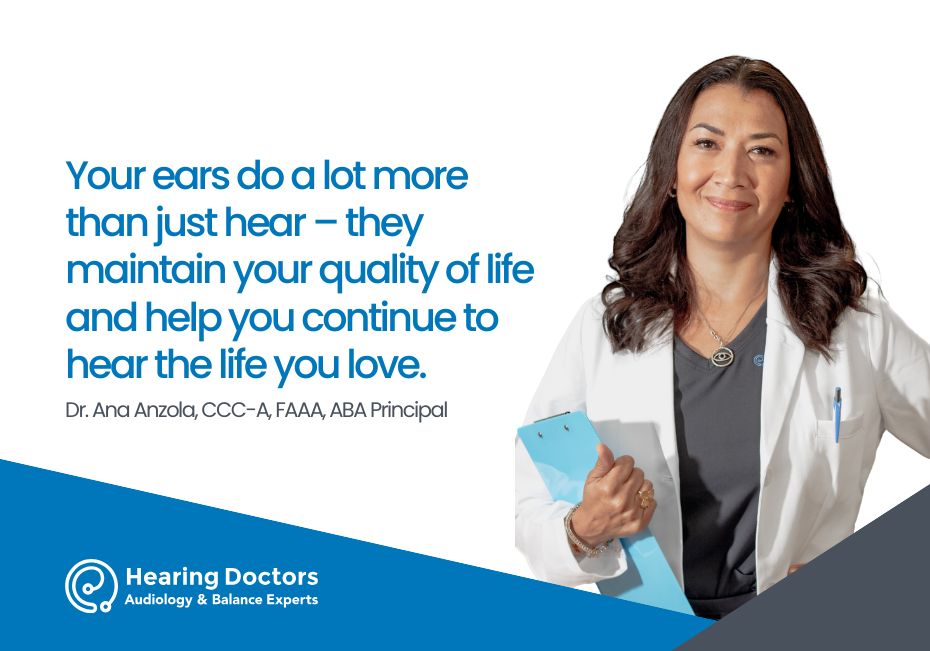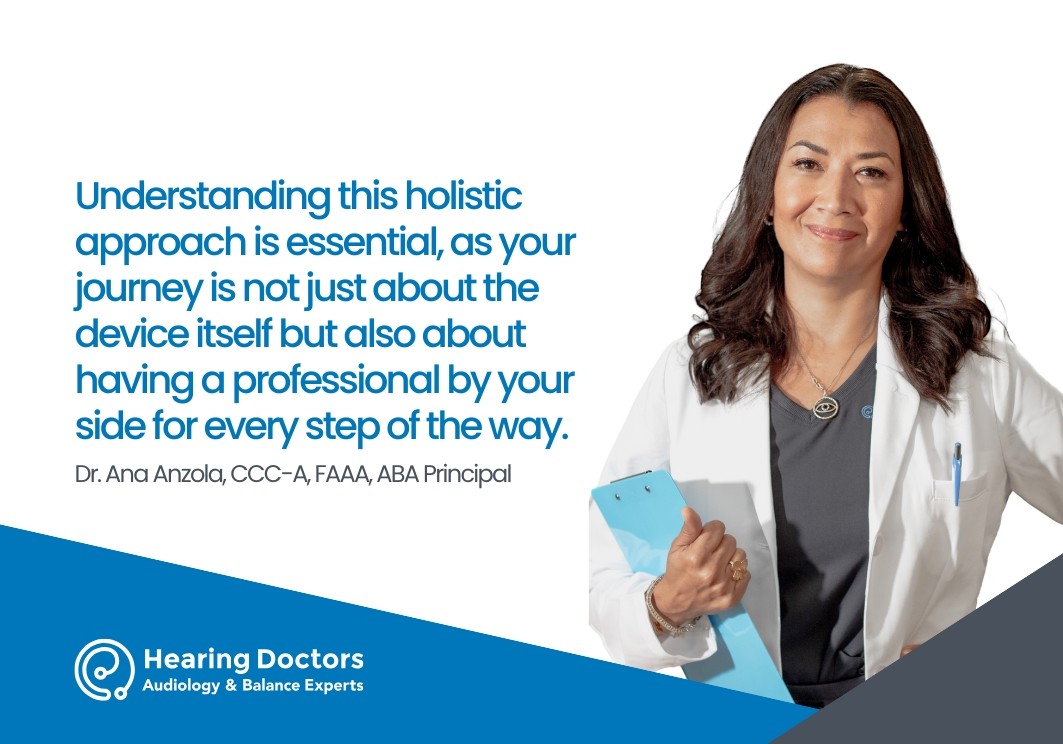Jun 1, 2015
Dr. Ana
Anzola, CCC-A, FAAA, ABA Principal
A Caregiver’s Responsibility
Most people assume portable music players are to blame, with teenagers plugged into headphones all day with no one to monitor the volume. But parents and caregivers have some responsibility too. For example, lawnmowers produce sounds upwards of 90 decibels – and any extended exposure to sounds over 80 decibels can be damaging to your hearing. But how many parents give their kids earplugs before sending them out to mow the lawn? What about teens who work summer jobs in landscaping, construction, or in retail stores that pump the music way too loud? How many parents or employers are educating the teens on healthy hearing practices, or providing earplugs to wear during work hours? Any of these loud activities can put a teen’s hearing at risk, but the adults around them aren’t doing anything to prevent it.
Teens Ignore The Consequences
The blame isn’t all on the parents. Teens are smarter than you might think, and they know when their activities are putting their hearing health at risk. A research study conducted by Siemans Hearing Instruments and ReRez Research found that 88 percent of teens knew that they were at risk for hearing loss as a result of their loud activities, and 78 percent said their parents would instruct them to change their habits if they knew how loud the noise around them really was. Most teens understand the consequences of their behavior, but they need a strong push in the right direction to change it.
Permanent Hearing Loss
According to the Centers for Disease Control (CDC), almost 13 percent of adolescents have some type of permanent, noise-induced hearing loss. Sadly, this is hearing loss that is not reversible, and is completely preventable.
Untreated Hearing Loss In Teens
A teenager living with untreated hearing loss can suffer with delayed cognitive development and communication issues, leading to poor performance in school, social isolation and depression. It is important to note if the symptoms of hearing loss are present in your teen, including asking people to repeat what they’ve just said, turning up the volume higher than normal on the TV or radio, or struggling to understand what is being said in class. If a child you know is experiencing any of these symptoms, take them to an experienced audiologist for a hearing test right away.
Teens need the right education, and a push from their parents in the right direction, when it comes to taking care of their hearing health. With a little help and encouragement, we can keep our teens hearing well for years to come.
Popular Blogs

Jun 3, 2025
Dr. Ana
Anzola, CCC-A, FAAA, ABA Principal
Understanding Types of Hearing Loss: Sensorineural, Conductive, and Mixed

May 21, 2025
Dr. Ana
Anzola, CCC-A, FAAA, ABA Principal
What Impact Is Artificial Intelligence Having on Hearing Aid Technology?

Apr 28, 2025
Dr. Ana
Anzola, CCC-A, FAAA, ABA Principal
Do You Think You’re Too Young for Hearing Loss?

Apr 15, 2025
Dr. Ana
Anzola, CCC-A, FAAA, ABA Principal
The Best Hearing Aids in 2025: Insights From a Doctor of Audiology


